Aug 24 2018.
views 537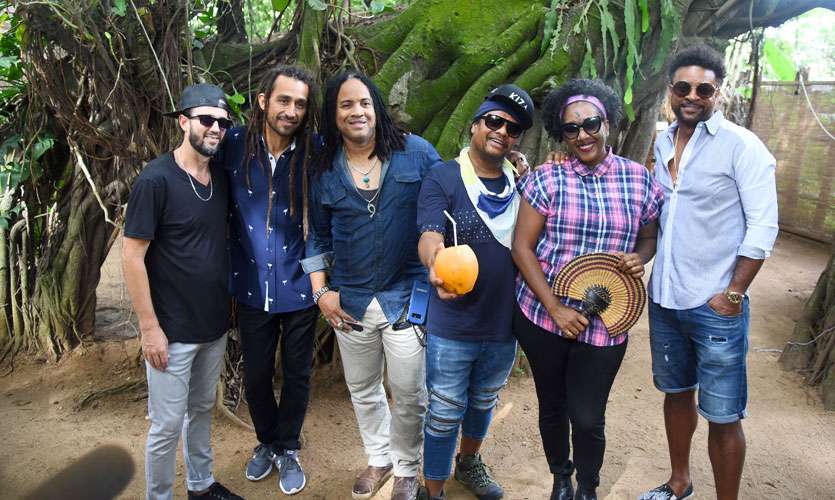
The first ever Colombo Music Festival conceptualised by Cinnamon Life concluded successfully on the 18th of August thanks to a fun atmosphere and most importantly, wonderful performances - by both local artists as well as the 4 international reggae artistes. Amidst their busy schedules, the Daily Mirror Life sat down for exclusive interviews with Shaggy, Maxi Priest, Diana King and Quino of Big Mountain. Check out excerpts from the interview below.
SHAGGY
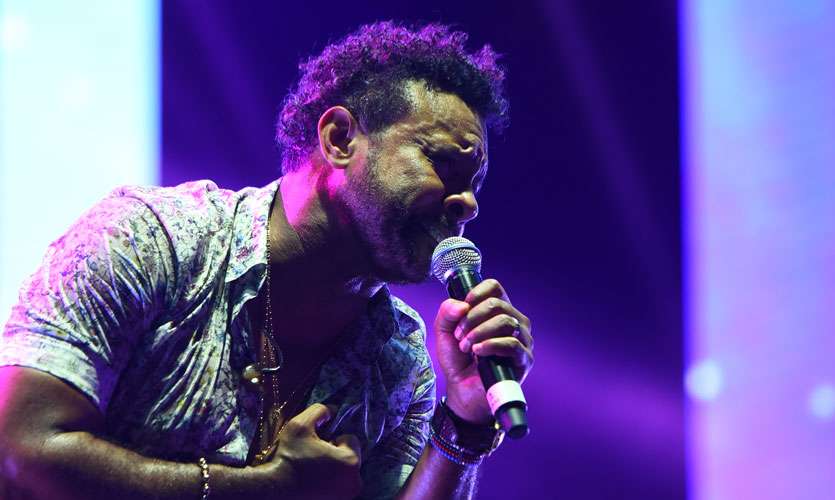
Q: You are an artist who has enjoyed longevity in the field. What do you attribute that to?
A: It's about trying to reinvent yourself. I've always said in everything that I do that no one will be bored of me before me. So I've been bored of me long before you will ever be bored of me; that is the main thing. I'm always excited by music and the changing of music and how it evolves. And just trying to find how I fit in within it - younger music now, a lot of younger artistes, new styles. I'm amazed that aged 50 and over 25 years of doing this that I am still even relevant. And I just put out an album with me and Sting that topped the charts in almost every country. We debuted at number 9 in England, went to number 1 in Germany, number 1 in France. We debuted high in the US. And we continued to work that album and so to be here this amount of time and still be relevant is great.
Q: You've been to Sri Lanka many times now.
A: It’s a good audience here in Sri Lanka. Always. It's always full of energy. A place with this much culture, you have so much energy coming back from them. So it's good.
MAXI PRIEST
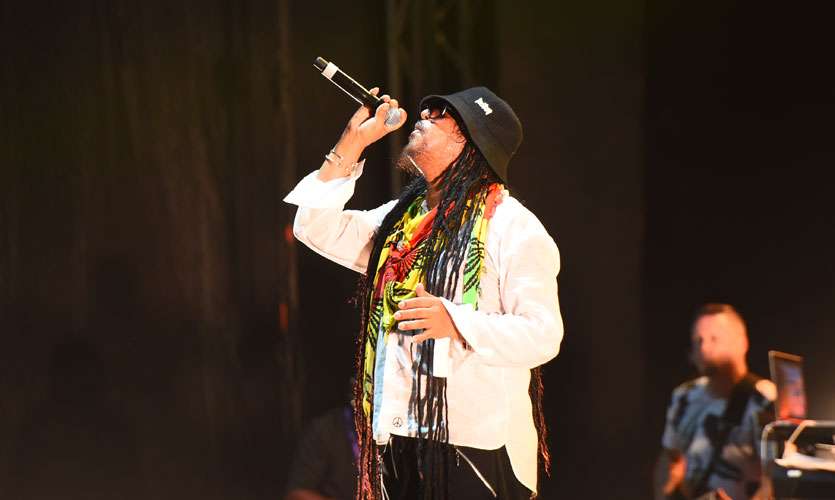
Q: Your first exposure to music comes from your days singing in the church. How did you foray into reggae and a fusion of R&B?
A: It was a natural progression. Really because I come from a large family of 9 brothers and sisters. My mother sang all the time. So as far as I'm concerned Even when I was in my mother's womb I was singing away or she was singing to me. And then growing up as second to last of 9, my brothers listened to reggae music. My sisters listened to a lot of RnB stuff. Jackson 5. My father listened to a lot of country and western music. My mother was into a lot of gospel.
And that's what created this fusion. A lot of that is just the appreciation of the art of singing because singing to me is like my spiritual brother. My spiritual guidance. my friend. Somebody that I take with me wherever I go. Even as a child - when I look back - I used to crawl under my bed and just want to be alone sometimes. But not alone. With my friend. Whether I was happy, sad, whatever, I would call on my friend. I would sing. For me, I feel like it just all came naturally, this fusion that everybody's talking about. My 9 brothers and sisters were the world. They were my first experience of meeting different people with different personalities. Different wants. Different needs. But the common vibe was music. They might like different music, but they all like music. So I interpret what they were liking and I would sing for my sisters, and then I would sing for my brothers and then for my dad and my mom. And this is where this melting pot comes from
Q: So you're inspired by what you listen to?
A: Most definitely. Big time. People have played a massive part in inspiring me. In all walks of life because everybody has their taste or their like of different genres of music. And I'm a people person. I love people. It doesn't matter where you come from. It doesn't take long for me to warm to you. So that mixed with music is almost like an Indian smoking a peace pipe. To me, it's all natural.
Q: is there anything you're inspired by that you're working on right now?
A: All the time. I'm actually working on a gospel album which is inspired by my mother and my family. I'm working on several albums. Afrobeat album featuring artistes from different parts of Africa. I could give you a long list because I like to keep busy. Life is short. So you have got to live and utilise this time.
Q: There are constantly emerging genres and fusions. Is there one that's completely out of your comfort zone you'd like to try?
A: Opera. Only in my house. Wow. What a massive talent to be able to sing opera. That's not easy. So that would be something out of my comfort zone that I would like to try one day.
Q: Are there any artistes you would like to collaborate with?
A: I would like to work with Rihanna. Look, there are so many people. Because that's my thing anyway. I'm not in this world alone and I want to be able to share whatever it is I have with other artistes. We're in the same game. So I don't see why we shouldn't.
Q: You're a veteran in the field, yet I noticed how humble you are and how patient you are with fans. It is definitely not easy. How do you manage?
A: I like to think that I am true to myself. And when I say that this is the way I was brought up. As I said, I come from a family of 9 brothers and sisters who lived in a very small house. It's very crowded. So there lies my experience of being crowded and being calm. There is a faith and a belief that there is something higher than all of us. And if you put your trust and believe in God then I think everything will work itself out.
Q: If I was to go through your Ipod right now, what kind of music would I find?
A: I don't listen to too much. I may switch on the radio. But I'm not that person who says, "let me pull out this and listen to this." Unless it's for a purpose or a reason. In my younger days, I used a sound system and have a whole lot of selection. So I did a lot of that in my earlier days. Sometimes I'm home and you won't hear anything. Because I need the space to create my own creation. When I hear music, I feel like I have to be on my toes and get working. So when I say silence is golden, I feel that. And I appreciate that. I like to just drive and appreciate the sound of the car. And something just comes to me and I start singing. And that's my music. I guess I'm comfortable and confident in my own space. I feel that whatever it is I want to do I can achieve it. If the radio comes on, I would be influenced.
QUINO
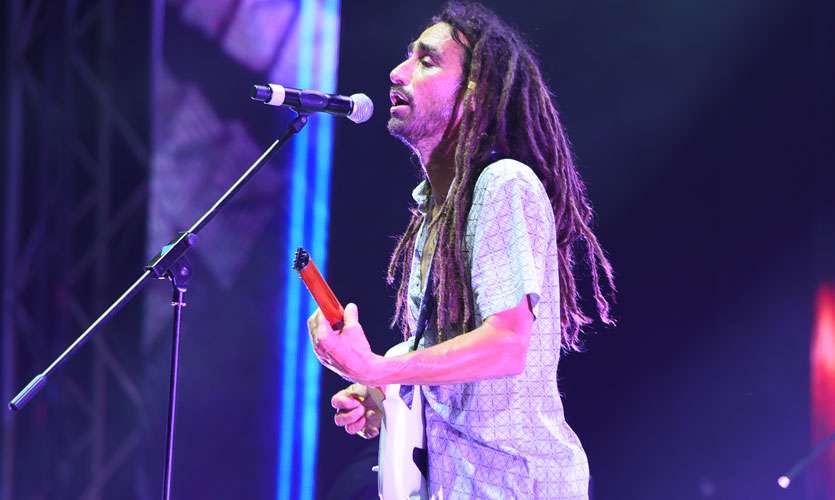
Q: You've had a long career. What has your musical journey been like so far?
A: You know what, it's been an adventure. We had a tremendous amount of success in the heyday of reggae. I was lucky enough to be part of the few bands that got to be part of the generation of reggae musicians and with all of the greats. You know my band had a big hit probably about 13 years after Bob Marley passed away. And it was during this era that you could still just feel the energy from Jamaica in the air. The musicians had a tremendous amount of conviction, were very spiritually and politically motivated and of course, we find it a mission to bring this music to the people and make it mainstream because up to a point it never really had big radio support. It really had a tough time because it was popularised type of music. And we were part of that generation - with us and Shaggy.
Q: Your music comprises influences from many genres. What was this fusion inspired by?
A: I come from a Mexican heritage . My first experience was watching my grandfather and my uncles play very traditional style Mexican music. So I brought that into my reggae experience. We did a lot of songs in Spanish. Mexican music is very ballad oriented. The vast majority of the songs talk about love and are romantic. So I never had a problem singing a love song. That was very easy for me. But because I come from a country where we’ve had a very difficult history - ethnic minorities in my country have had quite a struggle. Reggae music is about life. Reggae music talks about every subject like experiencing life. We are inspired by our Jamaican heroes because they talk about life and their experience. But we also have fun and talk about romance.
Q: What was your most memorable performance?
A: Reggae Sun Splash, 1994, in Jamaica. When you're young and you're coming up you're just trying - back then there was no YouTube. There was no internet. I remember I used to go to the the library to read books about artists. There were no books about reggae orrastafari so we were looking for cassettes. There also were a lot of myths about Jamaica - the ganja, the rasta culture and all that. And one of them was that - they said that if you played in Jamaica and they didn't like you, they'd throw beer bottles at you. So I was convinced that they weren't going to like us the first time. and I just remembered and I was playing up there and I was scanning the audience for the first beer bottle. Fortunately, we got a wonderful reception and my face was beer bottle free.
Q: Any new music or new albums on the horizon?
A: We have some collaborations going on. I can't divulge at this moment who they are but they are some big Jamaican artistes. We're kinda reaching back. I took a hiatus. Went back to college. Taught high school. Focused on my family. Now I’m coming back fresh. So I want to go back to Jamaica. Reach out to foundation players and the younger generation.
DIANA KING
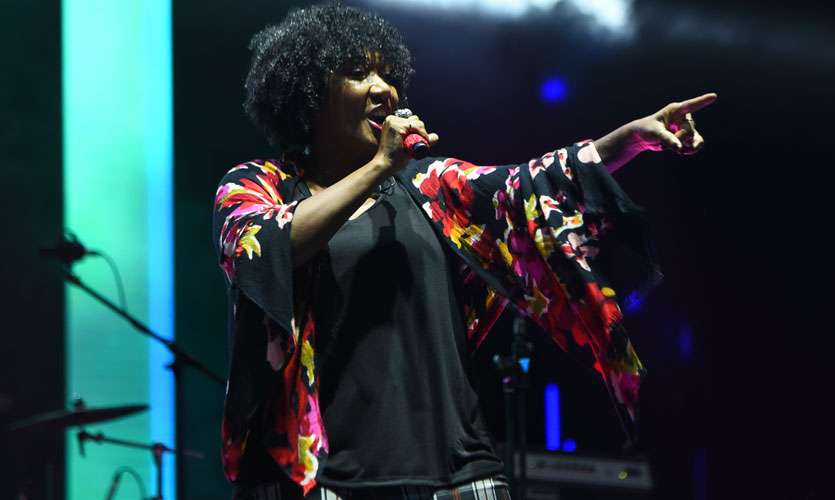
Q: You may have encountered many challenges to get where you are today. But have you learnt from these obstacles?
A: I think we're all the same. I'm just maturing and getting older and realizing that there's always change and to embrace the change and just go with your own flow. Once you don't resist, it's a very exciting life.
Q: How did you find a sound unique to you?
A: Coming from Jamaica, they weren't used to this voice for reggae. The first time I heard Aretha Franklin I felt like - YES! - and herself and people like Whitney Houston, and that was the voice I had so it helped me to develop my own sound. And of course, there's the reggae and the dancehall because I was used to all these different types of genres when I was growing up. My style just became a fusion of all of the music that I love.
Q: Are you currently working on anything?
A: I may be doing a collab with an artiste from here.
Q: Is there an experience that remains etched in your memory?
A: When I first realised how powerful music is. When I released my first album it didn't do anything for a while. But then the first place that it took off was Japan. You never think of that, coming from the Caribbean, that maybe in the US or UK. But Japan? Asia? No way. When I went there for a tour, they don't speak English.
There have been places like that where they don't speak English, but the music speaks. And it just gave me such an appreciation for the music. And it's kept me very humble.
Pics by Kushan Pathiraja & Waruna Wanniarachchi
0 Comments